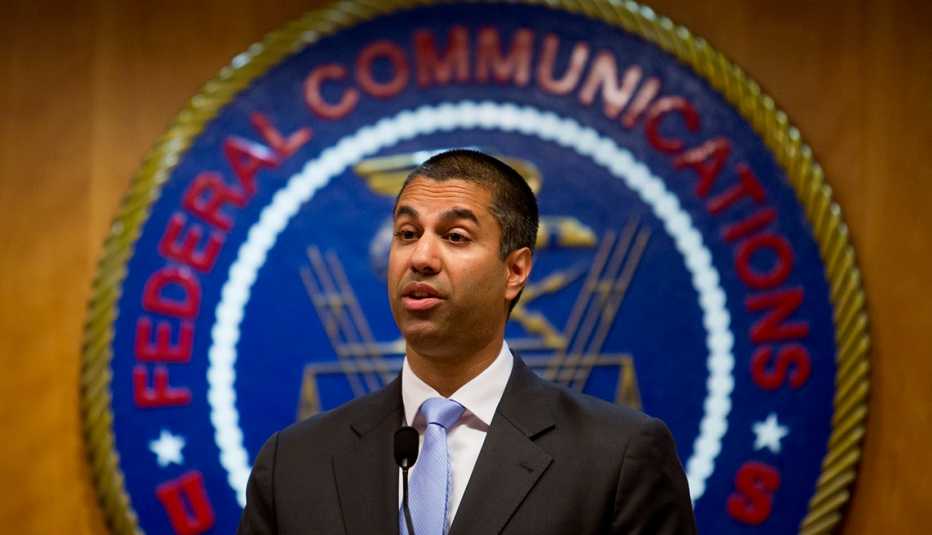Staying Fit


Rules that provide equal access to the internet were repealed by the Federal Communications Commission (FCC) on Thursday, setting off protests from consumer advocates and likely legal challenges.
The FCC’s decision to scrap so-called “net neutrality” rules is expected to transform the way that people use the internet by allowing major broadband providers — such as Comcast, AT&T and Verizon — to potentially block or slow down competing services and to charge more for certain content. It also bars states from imposing their own internet regulations. The 3-2 FCC vote was along party lines, with Republicans in the majority.


AARP Membership— $12 for your first year when you sign up for Automatic Renewal
Get instant access to members-only products and hundreds of discounts, a free second membership, and a subscription to AARP the Magazine.
FCC Chairman Ajit Pai, a Republican, said the repeal of net neutrality rules will help avoid “heavy-handed government regulation” of the “phenomenal” development of the internet. "Quite simply, we are restoring the light-touch framework that has governed the internet for most of its existence,” Pai added. “The sky is not falling, consumers will remain protected, and the internet will continue to thrive."
But Commissioner Mignon Clyburn, a Democrat, warned that the outcome will harm individual users, small businesses and marginalized populations while giving control to "a handful of multibillion-dollar corporations."
The FCC ruling could affect millions of older Americans who go online for research, banking, shopping, news coverage and social-media engagement.
“The widespread availability of high quality and affordable broadband connections — both fixed and mobile — will enable new applications and services that can enhance older Americans’ quality of life, including new methods of delivering health care and support for independent living,” noted AARP in its comments to the FCC opposing the rule change. “Policies to promote a vibrant and competitive internet ecosystem are essential for the continuation of this success.”

































































More on Politics
New Rules Should Simplify Shopping for Internet Plans
‘Nutrition labels’ will let you compare features, prices
10 Ways to Spot Fake Videos, Falsehoods on the Internet
You can sleuth for the truth as you look at apps, web
Are You Eligible for a Discount on High-Speed Internet?
The number of subscribers passed 20M. How to apply